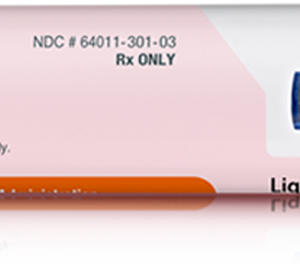- Could Your Grocery Store Meat Be Causing Recurring UTIs?
- Are You Making This Expensive Thermostat Error This Winter?
- Recognizing the Signs of Hypothyroidism
- 10 Strategies to Overcome Insomnia
- Could Artificial Sweeteners Be Aging the Brain Faster?
- Techniques for Soothing Your Nervous System
- Does the Water in Your House Smell Funny? Here’s Why
- Can a Daily Dose of Apple Cider Vinegar Actually Aid Weight Loss?
- 6 Health Beverages That Can Actually Spike Your Blood Sugar
- Treatment Options for Social Anxiety Disorder
Preterm Birth Drug Pulled From Market Over Lack of Effectiveness

Pregnant women will no longer have any drug to prevent preterm birth after the maker of the only available treatment announced Tuesday that it will withdraw its product, Makena, from the market.
Covis Pharma Group’s decision follows a U.S. Food and Drug Administration advisory panel vote last October that concluded the drug does not actually benefit newborns.
“While we stand by Makena’s favorable benefit-risk profile, including its efficacy in women at highest risk of preterm birth, we are seeking to voluntarily withdraw the product and work with the FDA to effectuate an orderly wind-down,” Covis chief innovation officer Raghav Chari said in a statement.
Makena was approved 12 years ago as part of the FDA’s accelerated drug approval program after promising results from a 2011 study, The New York Times reported. A larger study in 2019 showed no benefit to pregnant women or their infants.
The FDA has been proposing to remove Makena from the market since October 2020, a decision appealed by the drug maker, the Times reported. In October 2022, 15 FDA advisors voted that the study had not shown benefit. With one exception, they each voted for it to be withdrawn from the market.
“I think that when we leave something on the market that hasn’t been shown to be effective, we lose out on other investigations that might be pursued,” Dr. Anjali Kaimal, an obstetrician and administrator at the University of South Florida, said during the October hearing, the Times reported. “And the last thing I would say is that, again, faced with that powerless feeling: Is false hope really any hope at all?”
Covis proposed letting women already using the drug finish doing so and for the company to use up its inventory, but the FDA opted to follow its own plan for the process instead.
While some have felt the drug offers false hope, it was also the only choice available to offer women who have a health risk disproportionately affecting Black women and children, the Times reported.
Dr. Michael Carome, the director of health research for consumer advocacy group Public Citizen, said the FDA should further improve the accelerated approval program, including seeking authority to remove a drug that doesn’t work more quickly from the marketplace.
“Makena is a classic example where the clock has dragged out too long,” Carome told the Times.
More information
The U.S. Centers for Disease Control and Prevention has more on preterm birth.
SOURCE: The New York Times
Source: HealthDay
Copyright © 2026 HealthDay. All rights reserved.










